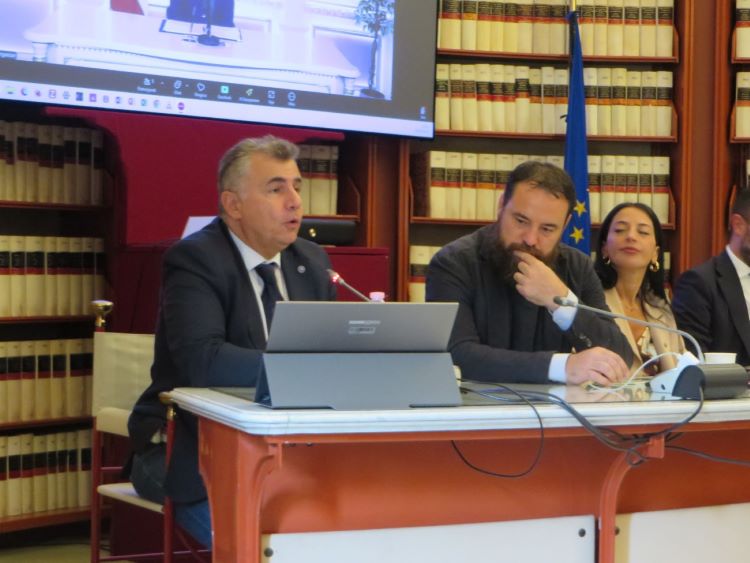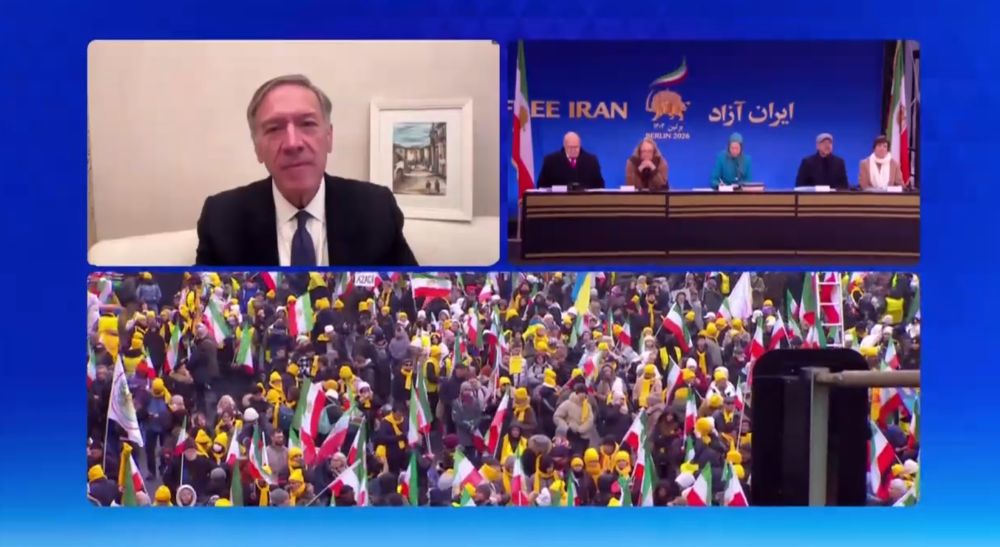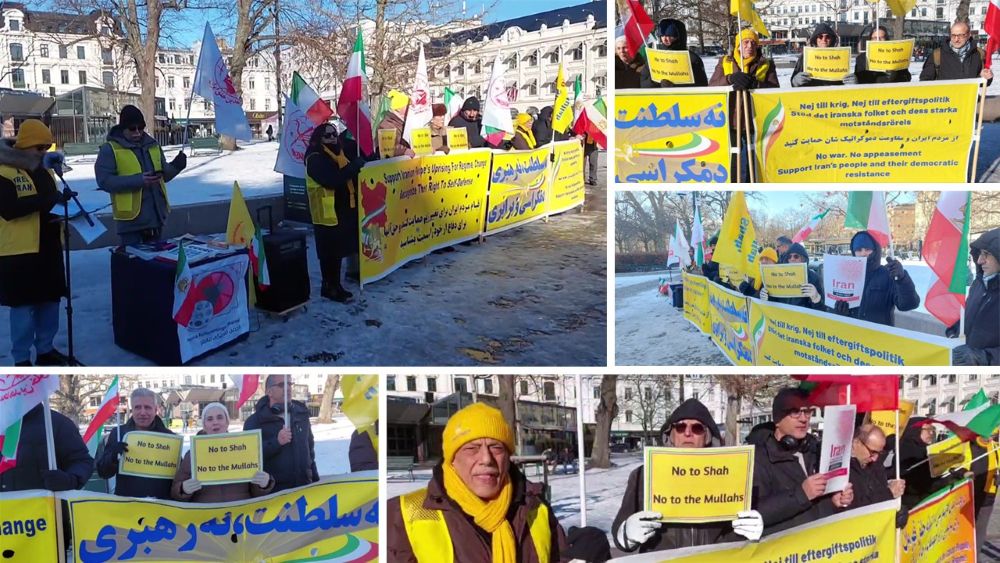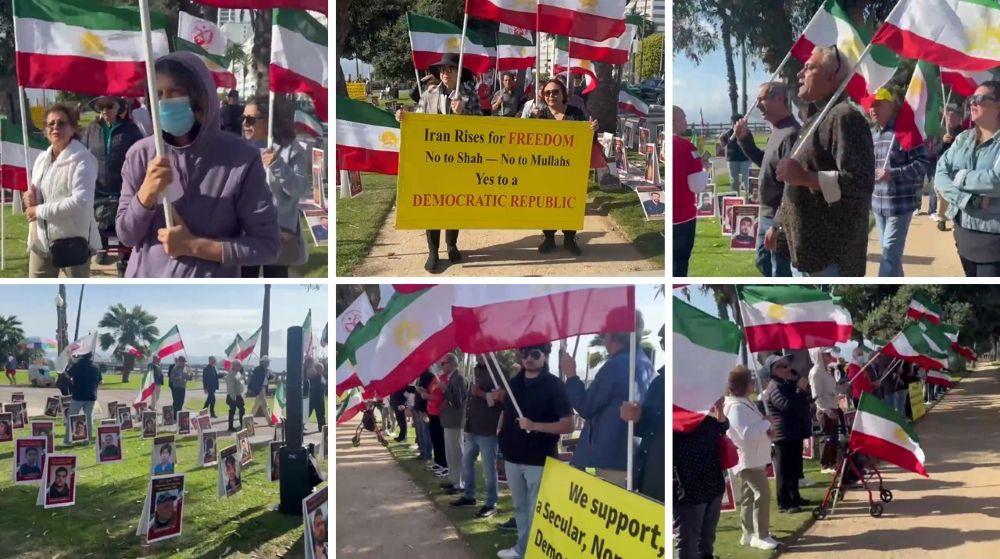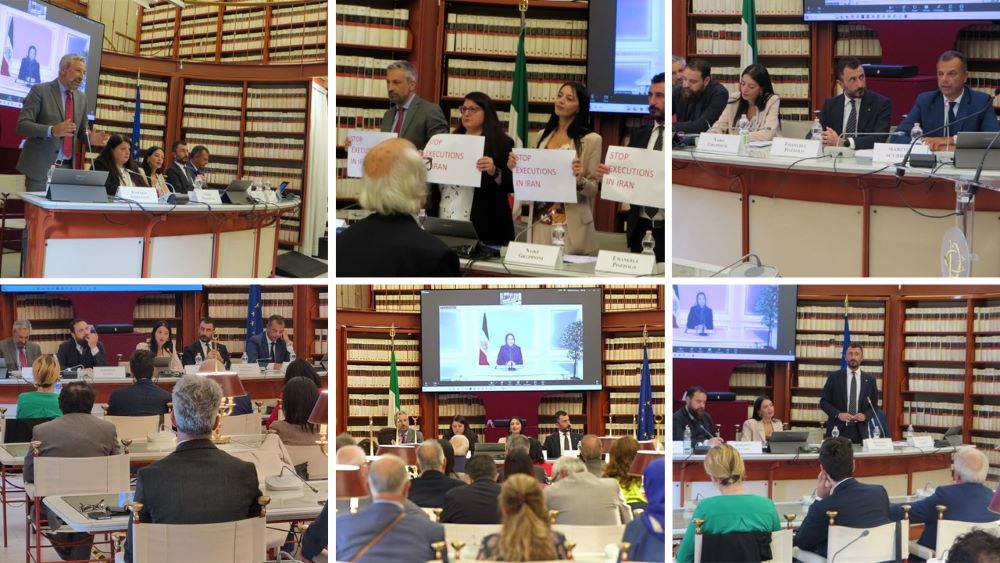
On Wednesday, September 25, 2024, the Italian Parliament held a notable conference titled “Iran: No to Executions – A Call for Justice,” gathering senators, members of Parliament, and international advocates for Iranian human rights from across Italy’s political spectrum. This event, organized to address the Iranian regime’s excessive use of executions as a method of suppression, included speeches from influential Italian politicians as well as a virtual address from Mrs. Maryam Rajavi, President-elect of the National Council of Resistance of Iran (NCRI).
Speaking via videoconference, Mrs. Maryam Rajavi stressed that the Iranian regime, under the leadership of Supreme Leader Khamenei, has systematically employed executions as a means of retaining control, referring to the judiciary as an “execution machine.” She highlighted that Iran holds the global record for executions, with 180 people having been executed in a brief span since the new president took office.
“Execution is not just a punishment under this religious dictatorship; it is a strategic tool for maintaining the survival of an illegitimate regime,” Mrs. Rajavi said. She emphasized the dire situation of political prisoners, many of whom are engaging in hunger strikes in protest of the death penalty. “The courageous declarations from torture chambers and execution sites represent the voice of a nation that remains strong and unyielding,” she continued, expressing hope for an Iran free of torture and executions.
Mrs. Rajavi reaffirmed the NCRI’s determination to abolish the death penalty in a future democratic Iran and called on international governments to hold the Iranian regime accountable. “We urge governments to make their diplomatic and trade relations with the clerical regime conditional on halting executions and torture,” she stated, also urging the United Nations to investigate Iranian prisons and the ongoing massacre of political dissidents.
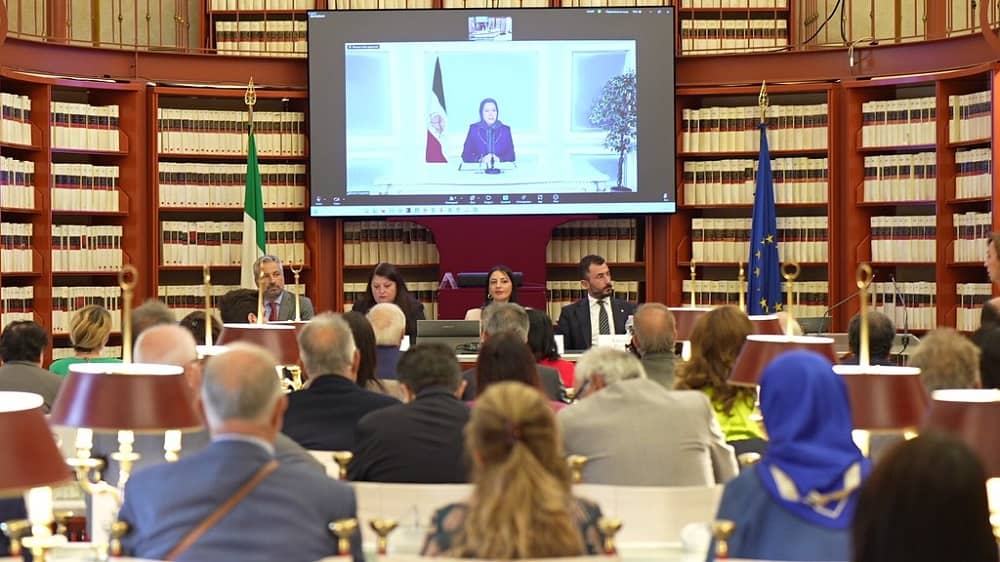
MP Naike Gruppioni, who chaired the conference, opened by stressing the importance of opposing the atrocities committed by the Iranian regime. She noted that the regime’s escalation of violence and repression, particularly against women, had reached alarming levels. “At least 160 executions have been recorded in this short period, and two protesters, after being arrested and imprisoned, died under torture,” Gruppioni said, highlighting the regime’s systematic abuse of power.
The Vice President of the Italy-USA Foundation referenced the 1988 massacre of 30,000 political prisoners, most of whom were members of the People’s Mujahedin of Iran (PMOI). “This atrocity, condemned by the UN Special Rapporteur and classified as a crime against humanity and genocide, exposes the true nature of a regime that shows no mercy,” she said, urging the international community to take decisive action. “The world cannot remain silent in the face of these horrors. We must keep calling for the release of political prisoners and the immediate end of executions in Iran.”
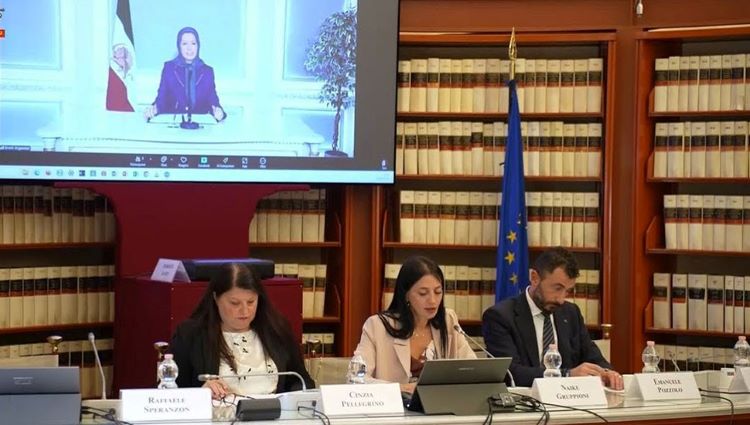
Senator Cinzia Pellegrino, a vocal advocate for human rights, reiterated Italy’s strong stance against the death penalty and political repression in Iran. “Previously, we said ‘Stop the executions in Iran,’ even staging a flash mob. But for us, this is not just a slogan. We deeply believe that democracy must be restored as soon as possible,” Pellegrino said. She also underscored the significance of Rajavi’s Ten-Point Plan for Iran’s democratic future, stating, “We hope this will be realized soon. As other European Union representatives mentioned this morning, we affirm: no to torture, no to the death penalty, no to political discrimination.”
Senator Pellegrino also reflected on the personal influence of Mrs. Rajavi’s leadership, having met her and experienced her vision for a future free Iran. “We know that the vision of the future is present in your eyes. That’s the future we want to see realized in the coming decades,” she remarked.
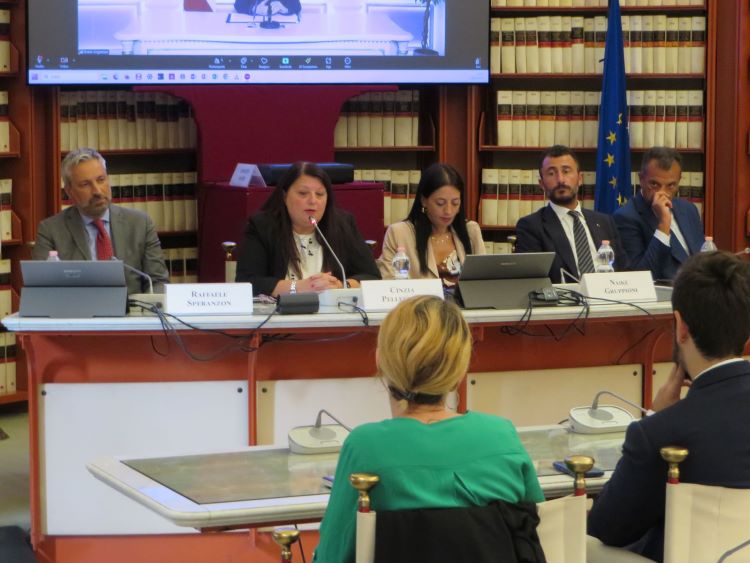
In his speech, Senator Raffaele Speranzon spoke about the shared humanity between the Italian people and Iranians suffering under the regime’s oppression. “Your people symbolize humanity, and the tortures they endure are matched by their courage, resolve, and strength as they continue to shout to the world, keeping alive the hope for a free Iran,” he said. Speranzon praised the bravery of Iranian dissidents who, despite the looming threat of death, continue to resist the regime’s tyranny.
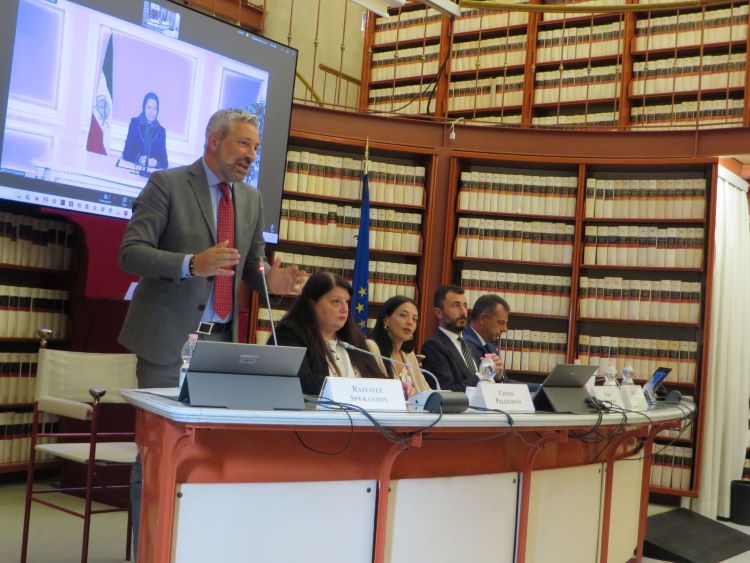
Senator Marco Scurria expressed solidarity with the Iranian people, encouraging them to persist in their fight for freedom and emphasizing the critical role of hope. “Tell your people that hope must never fade! Remind them that the wind of freedom is stronger than any wall, any court, or any bizarre Ayatollah,” Scurria declared. He drew comparisons between the Iranian people’s struggle and Italy’s historic fight for democracy, highlighting the shared values that connect both nations.
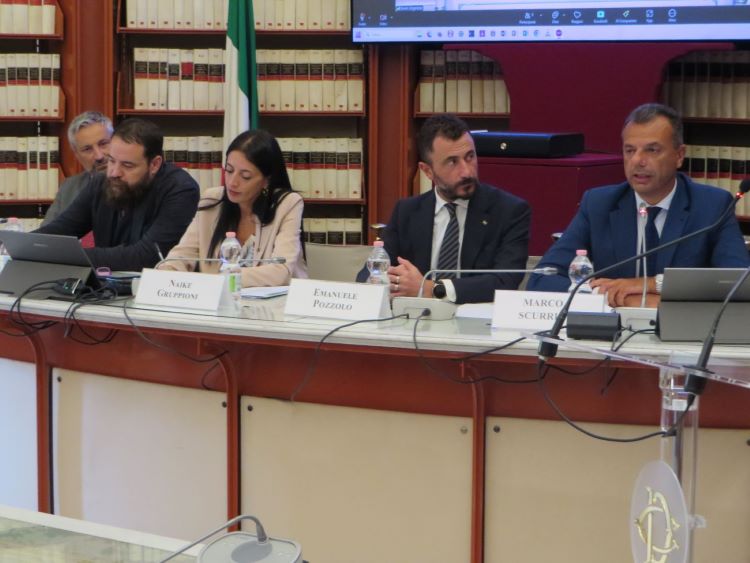
MP Emanuele Pozzolo addressed the Iranian regime’s contribution to global instability, describing it as the “head of the serpent” in international terrorism. He explained how the regime uses both defamation and violence to maintain its power. “Iran is increasingly proving itself to be, as many of us, including the MEK, Mrs. Rajavi, and others have long believed, the head of the serpent,” Pozzolo said.
A member of the Italian Parliament’s Foreign Affairs Committee warned that Tehran’s support for terrorist groups in the Middle East poses a direct threat to global security. He also condemned the regime’s efforts to discredit dissidents, stating, “There has been a relentless defamation campaign against Mrs. Rajavi, the dissidents, and anyone who opposes the regime.”
Pozzolo highlighted the resilience of the Iranian Resistance, noting that despite the regime’s attempts to silence and eliminate its opposition, the movement remains unshaken. “The fear of death has not weakened the opposition. Mrs. Rajavi and the MEK are living evidence that they will never be defeated,” he concluded.
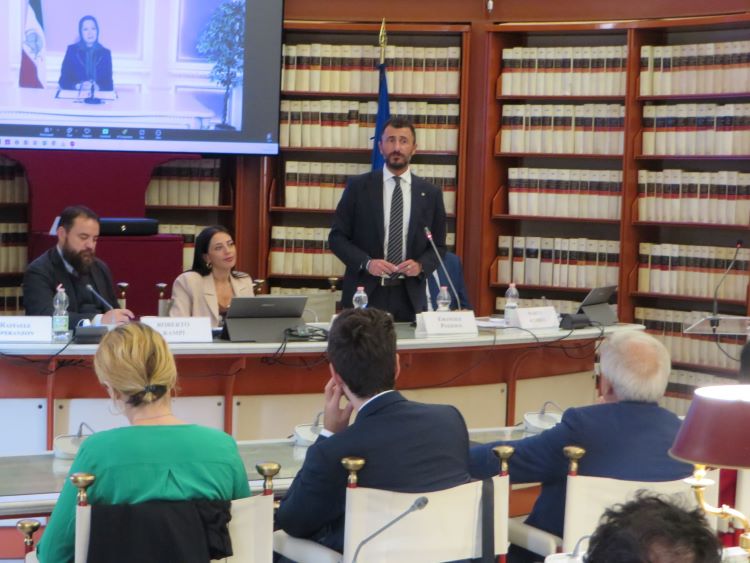
Former Senator Roberto Rampi, a longtime supporter of the Iranian Resistance, emphasized the necessity of non-interventionist approaches to Iran’s situation. He clarified that the Iranian Resistance does not seek foreign military intervention but rather support for their internal struggle for freedom. “None of us desire any kind of intervention in Iran, and the Iranian Resistance has made this very clear,” Rampi noted. He emphasized the failures of past interventions in the region, stressing the importance of allowing the Iranian people to determine their own future.
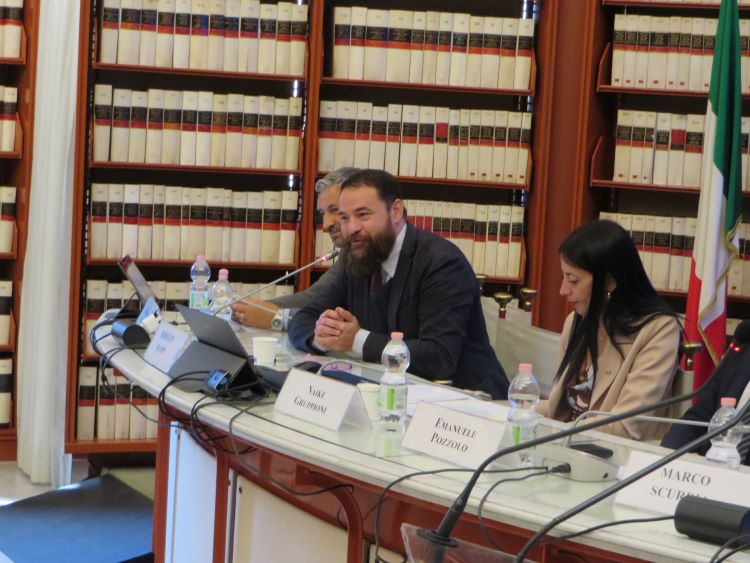
Manuele Vescovi echoed the dedication of Italian parliamentarians to supporting the Iranian cause, reflecting on his longstanding involvement. “I remember my first trip to Albania in support of you,” Vescovi recalled, referring to his engagement in international efforts to shed light on the Iranian regime’s human rights abuses. He stressed that the fight for democracy in Iran is not just Iran’s struggle but a global one. “These are not just your battles, they are ours too,” he said, adding, “I was there, I am here, and I will always be here for you.” Vescovi commended the bravery of the Iranian Resistance and reiterated his ongoing support for their cause.
